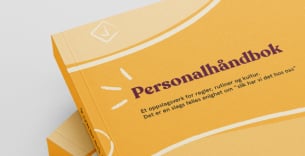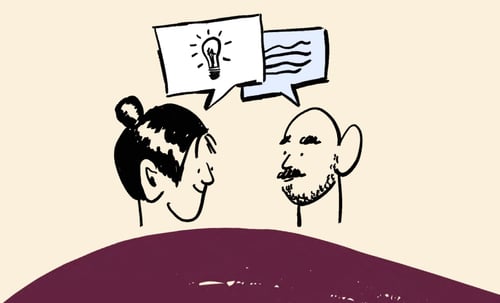What is an interview guide?
An interview guide is a means to make the interview process fairer, clearer and more structured. Such a guide helps you, as the employer, to ask the right, relevant questions, enabling you to make the best possible assessment and, ultimately, find the most suitable candidate.
It makes it easier for you, as moderator, to take the interview where you want, and get answers to your questions. An interview guide is a good tool for clarifying which questions you should ask, in which order, and how to ask them. In this way, you get to know exactly what you need about the candidates and an impression of them all on the same basis.
What should an interview guide contain?
- Introduction: Make sure you get off to a good start by initially telling the candidate about yourself and the company. You and the candidate should get to know each other a little better at this point, and the candidate should also talk about him/herself. It is important to create a comfortable atmosphere so the conversation flows naturally.
- Background questions: Questions about the candidate's technical and relevant skills. Here you ask questions that tell you whether the candidate's background matches the tasks that the position entails.
- Supplementary information: Ask questions that bring out concrete examples of important qualities in the position. This is where you find out if the candidate reasons well, or if they only give general answers.
- The company's values: Here you should be able to find out whether the person's behaviour and personal characteristics reflect the company's values. This point says a lot about who the candidate is and, in many cases, may be the last piece of the puzzle you need to gain a full picture of your potential employee.
- Conclusion: When ending the job interview, you usually give the candidate the opportunity to ask any final questions and inform the candidate about the further process. Here it is also common to talk about salary start-up and, not least, references.
- Worksheet for ranking: A form that makes it easier for you and the interviewers involved to set a final score for each candidate. In this way, you get an overall understanding of which candidate – and in what way – the person in question fulfils the criteria.
Template for interview guide
There is a lot to think about before, during and after an interview process – everything from preparation and questions, to observation and mapping. In advance of the interview, it is common to prepare various scenarios to put to the candidate, in addition to defining the desired characteristics and qualifications for the position. Obviously, during the interview, it is not only the questions you have to think about; you also have to observe the candidate and read between the lines.
In order to have as beneficial and efficient an interview process as possible, many people choose to use an interview guide template to keep the process tidy and clear. An interview guide template can make all this easier for you and contains structured points that take you through everything step by step. In addition, you will find descriptions, concrete examples and other important details that you might not otherwise think of.
You can use the interview guide template again and again, and the beauty of it is that you can make minor adjustments to it yourself to adapt it to the various positions advertised. Download our template for free!



